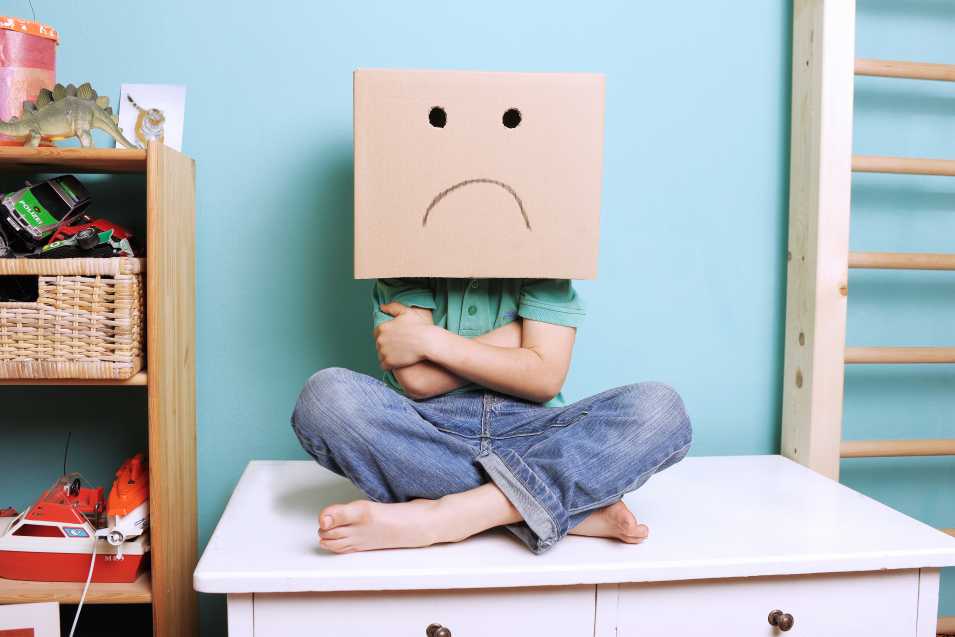In the realm of autism, emotional challenges can often run deep, and one particular aspect that warrants exploration is Rejection Sensitive Dysphoria (RSD). This enigmatic phenomenon, characterized by an intense fear of rejection, can significantly impact the lives of individuals on the autism spectrum.
Understanding RSD is crucial for those directly affected and their loved ones, as it sheds light on the intricate emotional landscape accompanying autism.
What is rejection-sensitive dysphoria?
Rejection Sensitive Dysphoria (RSD) is an emotional phenomenon characterized by an intense fear of rejection, often resulting in heightened sensitivity to perceived criticism or disapproval. While RSD can affect individuals across various contexts, it is particularly prevalent among those on the autism spectrum.
When facing rejection, RSD patients experience “dysphoria,” a state of uneasiness or dissatisfaction. This emotional response can manifest as overwhelming anxiety, sadness, anger, or self-loathing.
The origins of RSD can be traced back to the complex interplay between neurological factors and environmental experiences. Research suggests that individuals with RSD may have heightened emotional reactivity, as their brains may process social information differently compared to neurotypical individuals.
Additionally, negative experiences of rejection or criticism in early life can contribute to the development of RSD. Note that RSD is not a recognized diagnosis in the DSM-5. Still, it is recognized as a significant emotional challenge within the autism community.
Rejection sensitive dysphoria in individuals with autism
Rejection Sensitive Dysphoria often coexists with autism spectrum disorder, presenting unique emotional challenges for individuals on the spectrum. The intense fear of rejection can exacerbate existing difficulties in social interactions and emotional regulation, making it harder for individuals with autism to navigate relationships and engage in everyday activities.
The heightened sensitivity to perceived criticism or disapproval can lead to a constant state of vigilance, where individuals are constantly on edge, anticipating rejection in various situations.
For individuals with autism who struggle with social communication and understanding social cues, the fear of rejection can be particularly distressing. They may misinterpret neutral or even positive social cues as signs of rejection, leading to a heightened emotional response.
This can contribute to a cycle of anxiety and avoidance, as individuals may withdraw from social situations or become hypervigilant in an attempt to protect themselves from potential rejection. Consequently, this fear of rejection can significantly impact their overall well-being and quality of life.

Common emotional challenges associated with rejection sensitive dysphoria
The emotional challenges associated with Rejection Sensitive Dysphoria are varied and can manifest in different ways for each individual. However, there are common themes that emerge when exploring the impact of RSD on individuals with autism. One of the primary emotional challenges is a pervasive feeling of self-doubt and low self-esteem.
Individuals with RSD may constantly question their worth and abilities, believing they are inherently flawed or insufficient. This negative self-perception can be reinforced by even minor instances of perceived rejection, further perpetuating their emotional distress.
In addition to self-doubt, individuals with RSD may experience intense sadness and loneliness. The fear of rejection can create a sense of isolation, as individuals may withdraw from social interactions to avoid potential emotional pain.
A lack of social support and increased feelings of loneliness can result from this isolation, further damaging the person’s mental health. Persistent fear of rejection might cause heart rate, concentration, and emotional instability.
Rejection Sensitive Dysphoria can profoundly impact social interactions for individuals on the autism spectrum. The fear of rejection may lead to an avoidance of social situations or a reluctance to engage with others. This avoidance can prevent individuals from developing and maintaining meaningful relationships, as they may fear the potential emotional pain associated with rejection.
Consequently, individuals with RSD may struggle to form connections and may feel disconnected from others, perpetuating feelings of isolation and loneliness.
Moreover, the fear of rejection can also impact the ability to express oneself authentically. Individuals with RSD may censor their thoughts and emotions, fearing their true selves will be rejected or disapproved.
This self-censorship can hinder emotional expression and contribute to a sense of emotional invisibility, where individuals feel unseen and unheard. RSD can influence personal relationships, academics, and careers by making people avoid rejection or criticism.
Strategies for managing rejection sensitive dysphoria
While Rejection Sensitive Dysphoria poses significant emotional challenges, there are strategies that individuals with autism and their loved ones can employ to help manage and mitigate its impact. It is important to remember that strategies may vary depending on the individual, and a personalized approach is essential. Here are some potential strategies to consider:
1. Self-awareness and acceptance: Developing self-awareness and recognizing the presence of RSD is an important first step. By acknowledging and accepting the emotional challenges associated with RSD, individuals can begin to cultivate a greater sense of self-compassion and understanding.
2. Seeking support: Building a strong support system is crucial for individuals with RSD. This can include trusted friends, family members, therapists, or support groups. Validation and a sense of belonging can be gained through sharing one’s experiences and emotions with people who can relate.
3. Developing coping mechanisms: Identifying and practicing healthy coping mechanisms can help individuals manage the emotional distress associated with RSD. Deep breathing, mindfulness, creativity, and music can help you relax.
4. Challenging negative thoughts: Cognitive-behavioral strategies can help address negative thought patterns associated with RSD. Encouraging individuals to challenge and replace their automatic negative thoughts with more balanced and realistic perspectives can contribute to emotional resilience.
5. Building social skills: Learning and practicing social skills can empower individuals with autism to navigate social interactions with greater confidence. This can involve role-playing scenarios, seeking social skills training, or participating in social clubs or support groups specifically tailored for individuals on the spectrum.
Rejection sensitive dysphoria and mental health
Rejection Sensitive Dysphoria is closely intertwined with mental health, particularly in the context of autism spectrum disorder. The emotional distress associated with RSD can significantly impact an individual’s overall mental well-being.
It is essential to monitor and address any potential mental health concerns that may arise. This may involve seeking professional help from therapists or counselors experienced in working with individuals on the autism spectrum.
RSD can also occur with anxiety and sadness. In many circumstances, treating RSD and mental health issues together may be important. A holistic approach to mental health can help people with autism and RSD manage their emotions.
Rejection sensitive dysphoria in children with autism
Rejection Sensitive Dysphoria can manifest differently in children with autism compared to adults. It is essential to be attuned to the unique challenges faced by children and provide appropriate support.
Children with RSD may exhibit signs such as increased sensitivity to criticism, emotional outbursts, or avoidance of social situations. They may also struggle with forming and maintaining friendships, as the fear of rejection can impact their ability to trust others.
RSD-afflicted youngsters need a safe place to vent their emotions. Communication strategies tailored to their developmental stage can help them articulate their feelings effectively. Additionally, providing opportunities for social skill development, such as playdates or social skills groups, can empower children to navigate social interactions with greater ease.
Related Article: ABA Therapy NYC
Rejection sensitive dysphoria in adults with autism
Rejection Sensitive Dysphoria continues to impact individuals on the autism spectrum into adulthood. For adults with RSD, the fear of rejection can manifest in various facets of life, including romantic relationships, friendships, and professional pursuits. Recognizing that the emotional challenges associated with RSD do not necessarily diminish with age and may require ongoing support is crucial.
Supporting adults with RSD involves creating a supportive network that understands and validates their experiences. Engaging in therapy or counseling can provide individuals with the necessary tools to navigate the complexities of adult life while managing the emotional impact of RSD.
Additionally, promoting self-advocacy and encouraging individuals to express their needs and boundaries can empower them to navigate social and professional relationships more effectively.
Final Thoughts
Rejection anxiety can affect self-esteem, social interactions, and well-being. RSD sufferers can manage their emotions and live full lives with help and methods. RSD and autism knowledge and support can make society more accepting.
Related Article: Is OCD Truly Neurodivergent
